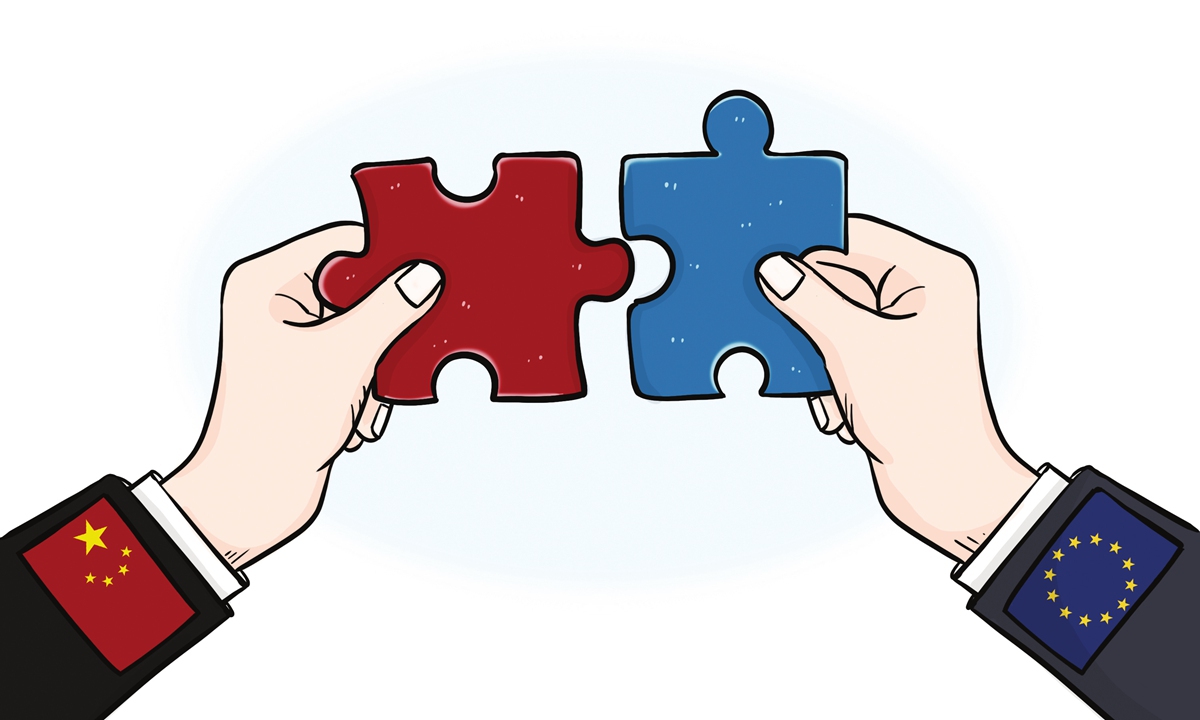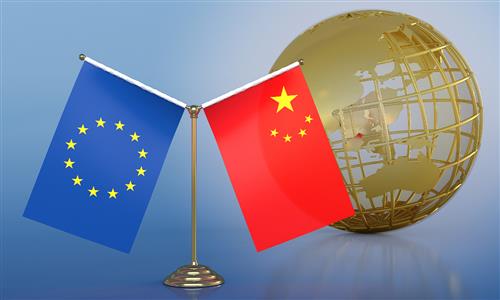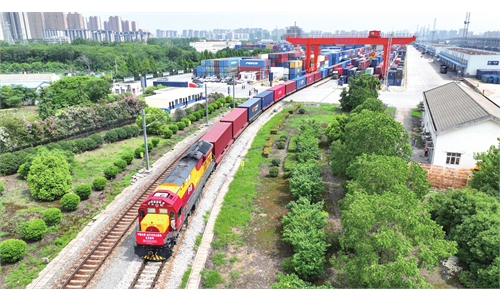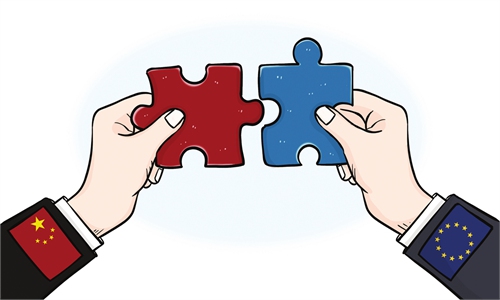The world expects China and EU to become ‘trustworthy cooperation partners’: Global Times editorial

China EU relations
President Xi Jinping had a phone call with President of the European Council Antonio Costa at the latter's request on January 14. The first contact of President Xi with the new leader of the EU institution provided important strategic guidance for China-EU relations at a critical juncture of building on past achievements and opening up a new future. Costa said the phone call was "constructive." This shows that the leaders of China and Europe have a high level of consensus on enhancing strategic mutual trust, expanding open cooperation, maintaining multilateralism, and promoting greater development of China-Europe relations. They also hold a positive attitude and goodwill toward making greater contributions to world peace, stability, and prosperity. This is a promising start for the development of China-EU relations in 2025 and also good news for the world.
Many people noticed President Xi mentioned during the phone call that China remains confident in the EU and hopes the EU will also prove to be a trustworthy cooperation partner for China. This remark was widely cited by European media and regarded as a gesture of goodwill and constructive intent from China toward Europe. Western media also analyzed that Europe hopes to send a signal to the US that the EU wants to remain open to China. Becoming a "trustworthy cooperation partner" and the idea that "like-mindedness makes for partnership, and seeking common ground while respecting differences also defines partnership" are not only significant expectation from China, but also should become the common direction of efforts for both China and Europe.
This has strong practical relevance. Recently, the fundamental trust in China-EU relations has been obviously violated to a certain extent, making it urgent to repair this trust between both parties. Many Chinese people perceive that the European side has not acted like a friend for some time.
For example, some people in Europe completely adopt a utilitarian perspective, imposing unilateral sanctions on Chinese companies while simultaneously hoping for increased Chinese investment in certain areas. This is difficult for the Chinese to accept. The mind-set of seeking to win all for oneself without caring about the other's concerns is, in fact, a highly self-serving way of thinking that undermines the truSt between both parties.
It is necessary to recognize that China-Europe economic and trade cooperation is characterized by complementary advantages and mutual benefits. Both sides are defenders of the multilateral trading system and have formed a strong economic symbiotic relationship. This is an objective reality.
China and the EU are each other's second-largest trading partners. The EU is China's largest source of imported consumer goods and the largest export market for China's electromechanical products. Despite trade frictions, China-Europe trade achieved a growth rate of 1.6 percent last year. China's trade with France, Spain, and Hungary increased by 2 percent, 4.5 percent, and 12.9 percent respectively. Additionally, the China-Europe freight train service set a new record with 100,000 trips. From this new "report card" of China-Europe trade, we can still see the tremendous development dividends and broad prospects that the ever-close and resilient China-Europe community of shared interests can bring to both sides.
In the past, China-Europe cooperation was primarily based on their respective positions in the global industrial chain. Now, with China's rapid development, its position in the industrial chain is also changing. This represents more opportunities rather than risks for Europe. By leveraging the large economic scales and comprehensive industrial systems of both sides, along with their unique advantages in resource endowments and technological innovation capabilities, China and the EU can achieve a higher level of integration among supply chains, industrial chains, and value chains. This should be considered as a strong advantage for advancing China-EU cooperation, rather than being labeled a "risk area."
We do not deny the changes in the objective environment or the existence of issues; however, differences and problems do not represent the entirety of China-Europe relations. It is precisely because of these differences that dialogue and communication between China and Europe are particularly important. When examining China-Europe economic and trade relations, one needs to transcend the narrow perspective of "win vs lose." China and Europe are now significant export markets for each other's automobiles, and the automotive industry is a key area of EU investment in China. Both sides can shift their cooperation from the market level to the industrial and technological level. In emerging fields such as artificial intelligence, electronic information, clean energy, aerospace, and biopharmaceuticals, there are many opportunities for increasing cooperation between China and Europe. There are no fundamental conflicts of interest or geopolitical contradictions between China and Europe, and this has not changed in the past 50 years.
As President Xi has stated, over the past 50 years, China-EU relations have not only contributed to their respective development but also made significant contributions to global peace and prosperity.
China and Europe can achieve long-term stability and progress only by continuing to move in the direction of mutual benefit and trust. Both sides grow and develop together through mutual respect, equal treatment, and open dialogue, becoming "trustworthy cooperation partners" - this will also provide strong support for countering the tide of protectionism and promoting solutions to global challenges, which is what the world hopes to see. Costa expressed anticipation for the China-Europe summit to be held in Brussels later this year, which has garnered significant attention from European public opinion. 2025 is an important year for China-Europe relations, and we believe that by fully utilizing this critical juncture, more positive developments will occur between China and Europe.



